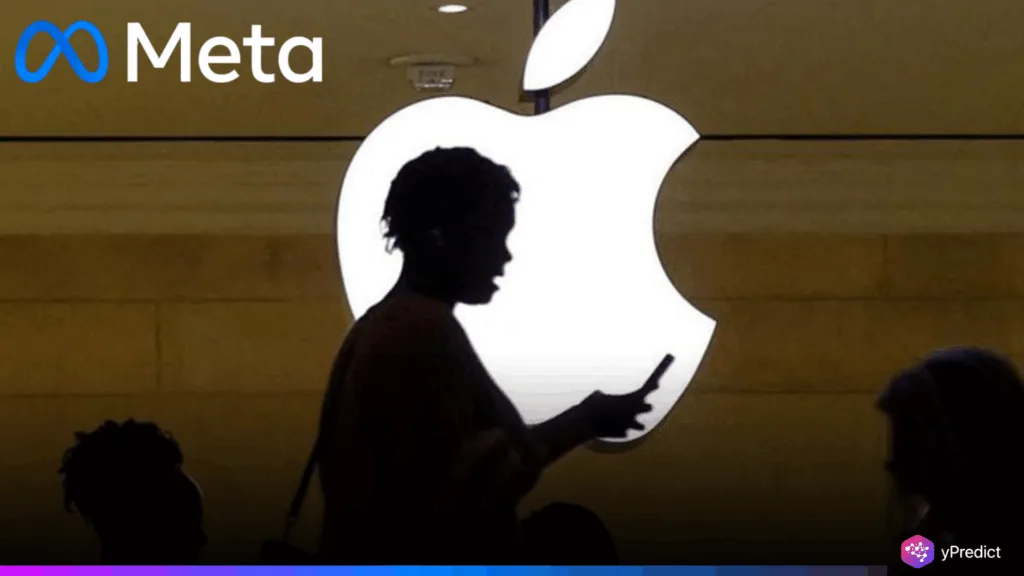
Meta has taken a bold step in the AI race by hiring two top Apple researchers, including the widely respected Ruoming Pang. The move underscores Meta AI’s intensifying focus on artificial general intelligence (AGI), aligning with its ongoing $14.3 billion investment in Scale AI. According to Bloomberg, the acquisition of this talent aligns with Meta’s larger framework to move faster on its focus on AGI. It could only realistically become true in the next 20 years or so.
The pace of hiring, combined with significant changes in structure, puts Meta in direct competition with OpenAI, Google DeepMind, and other AI companies. Although the implications for winning in the AGI race have never been greater, Meta seems set to rearrange any assumptions about who will lead the way in general-purpose AI.
Meta AI Expands Elite Research Bench
Meta AI has rapidly expanded its research division, particularly within the recently restructured Superintelligence Labs. The hiring of Ruoming Pang from Apple marks a key win for the company, as Pang is recognized for his contributions to advanced AI models and the optimization of systems. His arrival, alongside another unnamed Apple scientist, brings Meta’s elite researcher count to nearly two dozen. These hires reflect a broader strategy that prioritizes raw talent over corporate loyalty.
Rather than building slowly and steadily from within, Meta AI is actively drawing experts from rivals. This push directly undermines the idea that OpenAI or DeepMind are the sole leaders in AGI development. Internal sources confirm that Meta’s leadership views this moment as a pivotal turning point. The hiring of Pang, known for his academic rigor and success in applied machine learning, is a deliberate signal that Meta intends to close the technical gap and accelerate its AI timeline.
AGI Timeline Becomes Core Competitive Metric
While many companies discuss AGI in theoretical terms, Meta is actively measuring progress through its hiring and investment strategy. By bringing in specialists like Ruoming Pang and funding efforts like Scale AI, Meta AI is not just betting on long-term breakthroughs—it’s trying to shrink the AGI timeline altogether.
Meta’s internal roadmap reportedly aligns with the shorter end of that projection. According to a Wired report from June 2025, Meta has already implemented accelerated research protocols designed to yield near-human reasoning models by 2030. This means Meta is no longer just participating in the AI race—it is attempting to redefine the finish line. Unlike OpenAI, which has emphasized cautious deployment, or Google DeepMind, which focuses on iterative gains, Meta AI appears set on speed.
Ethical Dissonance Between Corporate Cultures
As Meta seeks to accommodate and absorb Apple talent, it faces mounting scrutiny around the ethical implications of such action. Apple tends to have a clearer ethical standard on issues such as data limitations and user privacy as a company, while Meta relies heavily on personalized advertising as a revenue source. This leads to immediate concerns around whether ethical standards would shift if and when researchers such as Ruoming Pang cross company boundaries. A 2024 IEEE study cautioned that talent migration between companies with starkly different values could result in diluted ethical practices.
However, the risk still exists. As Meta accelerates the AGI timeline, critics fear that ethical guardrails may give way to speed. AGI is a transformational leap; therefore, any misalignment between technical advancement and welfare applications could have worldwide implications.
Meta AI’s Endgame: Lead the AGI Era
With billions poured into infrastructure, a growing team of top-tier researchers, and a singular focus on shortening the AGI timeline, Meta AI is shaping up to be one of the most aggressive players in this field. The appointment of Ruoming Pang is more than a story—it’s a strategic manipulation in a plan to try to be ahead of competitors and rethink the future of intelligence.
Whether this level of audacity creates value or unwinds complexity is yet to unfold. But it is clear Meta is moving forward and no longer seems to be focused on just how to catch up. It’s focused on how to lead. And it is building the team, funding the work, and laying out the schedule to do so.






